Is alcohol in skin care bad?
First, it’s important to know why alcohol is even present in skincare products. Below, we’ll go over the different types of alcohols, but in general, they are used as emulsifiers and solvents. Depending on their molecular weight they can be used to achieve a desired texture. There are also some antibacterial properties and drying capabilities, which are good for people with oily skin or who are prone to acne.
It would be wrong to say that all alcohols used in skincare products are bad. In fact, in many cases, it’s the amount of alcohol used that can lead to undesirable effects. Skincare products have become high tech, in the sense that they are formulated for particular skin types. That is why your first step in developing a skincare routine should be to determine your skin type. For example, if you have dry skin and you choose a cleanser or toner that was developed for oily skin, you’ll likely over dry your skin and experience unwanted side effects.
Similar to when you are shopping for food, you should carefully read the ingredient list on the product’s back label. Below is a list of alcohol types used in skincare products that will help you understand what each type of alcohol is and what it’s used for.
What types of alcohol are used in skincare products?
Simple alcohols
Simple alcohols are derivatives of ethyl alcohol. Isopropyl alcohol, methanol, ethyl alcohol and ethanol (SD alcohol, denatured alcohol/alcohol-denat) fall into this category and have a low molecular weight. Their low molecular weight allows them to function as solvents. They are good at achieving a specific texture for creams, lotions, etc. and make them feel lighter on your skin.
Simple alcohols are also used to help other ingredients penetrate the skin. Used on their own or in large concentrations, they could dry out the skin and even damage it. However, if they are combined with other ingredients in a proper ratio, they typically don’t have a negative effect on the skin. A third use for this type of alcohol is for its antibacterial properties. People suffering from acne can benefit from the antibacterial properties.
Denatured alcohol is basically ethyl alcohol and includes additional chemicals called denaturants. Denaturing refers to removing a property from the alcohol and rendering it unfit for human consumption. This type of alcohol is one that should be avoided when choosing a skincare product. You can find it listed on the ingredient label as ‘denatured alcohol’, ‘SD alcohol’ (specially denatured), ‘alcohol denatured’ and sometimes ‘alcohol denat’.
Is ethanol harmful to skin?
Ethanol dries the skin out and can be used to remove sebum from oily skin types. However, that isn’t always such a good effect. Drying out the skin can make it more susceptible to a weakened epidermal layer. This, in turn, can lessen the protection, cause inflammation and speed up the aging process. Ethanol at the proper concentration can be beneficial to certain conditions though.
Fatty alcohols (good)
Common fatty alcohols found in skincare products are cetyl alcohol, isostearyl alcohol, stearyl alcohol and cetearyl alcohol. These alcohols help the skin stay hydrated and are useful in many different types of skincare products. They have occlusive and emollient characteristics and can be used as a thickening agent. Fatty alcohols are typically not harmful or damaging for skin. If you have oily skin, there may be a chance of pore clogging with higher levels of fatty alcohols.
Is cetearyl alcohol bad for skin?
Cetearyl alcohol is used to help soften the skin. Generally, it doesn’t over dry or irritate skin, and it is considered to be safe and non-toxic. Cetearyl alcohol is a waxy substance made from stearyl alcohol and cetyl alcohol, which are found naturally in plants and animals. These alcohols can also be synthesized in a lab.
Cetearyl alcohol is used in many personal care products to help create thicker, smoother and more stable foam products. It also helps prevent creams from separating into oil and liquid.
Some examples of products that contain this type of alcohol are:
- skin creams
- moisturizers
- lotions
- sunscreen
- hair products (conditioners, shampoo, mousse, dye)
Aromatic alcohols
As you might guess, aromatic alcohols have a strong fragrance and are used for this. They are used due to their anti-microbial properties, as well, and additionally as preservatives.
Aromatic alcohols are derived from essential oils and have properties similar to simple alcohols. They may cause dryness and/or skin irritation. If you have sensitive skin type, using products with these ingredients are more likely to cause skin irritation. Synthesized versions may be toxic and cause skin sensitivities and allergic reactions. Unfortunately, the chemical composition of the synthesized version is the same as the natural version, so unless the label lists whether or not it is ‘natural’ or a synthetic, there’s no way to know.
Benzyl alcohol
The most common aromatic alcohol used in skincare products is benzyl alcohol. Phenethyl alcohol is another common type used. Benzyl alcohol in skincare products is mainly used to provide a fragrance, but it’s also used in skincare products to increase the shelf life (as a preservative) and to help mix or dissolve other components of the product (as a solvent).
Benzyl alcohol can be synthesized or obtained from natural sources. Naturally, it is obtained from fruits or plants, such as jasmine. Sometimes, you’ll see benzyl alcohol listed in the ingredients even if it hasn’t been added. This is more common in ‘natural’ skincare products because the benzyl alcohol is a component of some of the naturally derived essential oils.
Synthetically made benzyl alcohol is common in mainstream skincare products. If benzyl alcohol is not noted on the ingredients label as naturally derived, there’s a good chance it’s synthetic. If you are trying to avoid synthetic alcohols, read the label carefully before purchasing.
Benzyl alcohol is considered safe in formulations with a concentration of less than 1%. Is benzyl alcohol drying? At high concentrations benzyl alcohol can really dry out the skin and have some harmful effects. It is also considered to be a possible irritant, so beware. If you have sensitive skin type, choosing a fragrance-free product would be a better choice.
What alcohols are good for my skin type?
After learning about the different alcohols used in skin care, you may be confused about which ones are good for your skin. Of course, if you are allergic to specific ingredients, you should stay away from them. It’s important to note that skin product formulas are quite complex. The presence of one form of alcohol on an ingredients list will tell you just a little about the product as a whole. It comes down to how much of the alcohol there is in a product and whether or not it’s suited to your skin type. Here are some basic rules to keep in mind:
For dry skin: Look for products with high molecular weight alcohols on the ingredients list. These will give you a more moisturizing feel. These alcohols would fall into the Fatty Alcohols list. Some examples are cetyl alcohol, isostearyl alcohol, stearyl alcohol and cetearyl alcohol.
For oily skin: You may want to choose a product with low molecular weight alcohols in it (simple alcohols), as they are better at removing excess sebum. Just keep in mind that too much of a concentration of simple alcohols may lead to over drying. In turn, this can cause your skin to actually produce even more oil, which will compound your oily skin issues.
For sensitive skin: If you fall under this category of skin, you should use caution choosing products with any kind of alcohol. People with sensitive skin probably have the most difficult time finding the right solution for their skin type, and unfortunately, it may come down to trial and error to get the right product.
Not sure of your skin type? Click Here
In general, skin care manufacturers formulate their products based on skin types. Your skin type should be the first box you check off when looking for a product. From there, look closely at the ingredients to help narrow down your choice, especially the type and volume of alcohol in skincare products. In the end though, the entire formula of the product will matter most and you’ll more than likely have to go through some trial and error to find the right product.

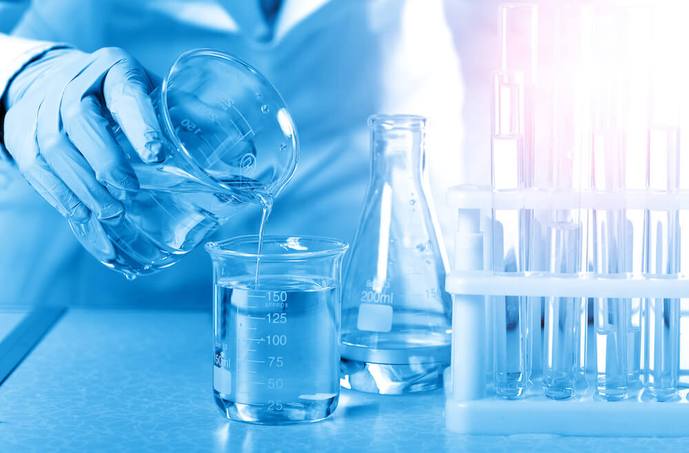
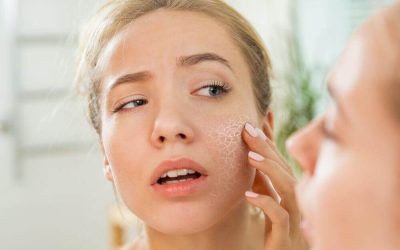
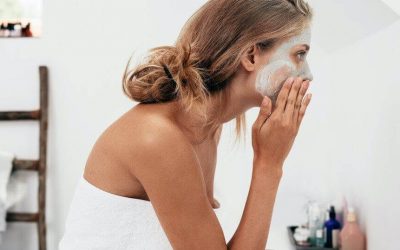
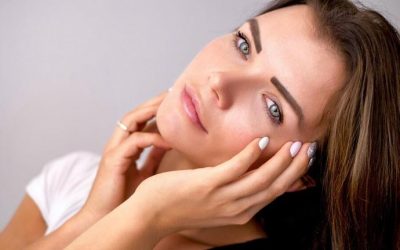
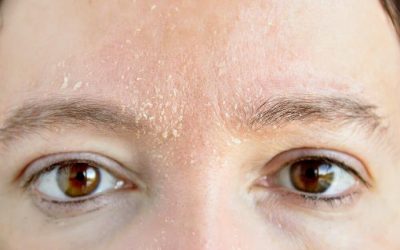



0 Comments